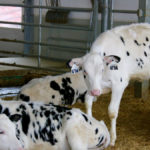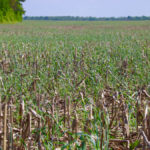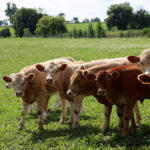Tag Archives University of Guelph

Study finds burnout a real risk for producers
The Ontario study found that community involvement improved farmers’ mental health

Comment: Where agriculture fits in a world of constant change
Change isn’t anything new to agriculture, but the sector’s image doesn’t reflect that reality

Calves benefit from longer colostrum feeding
Gut development is enhanced if they get more than a couple of colostrum feedings

Guelph asparagus variety has transformed the Ontario sector
University of Guelph recognizes breeder Dave Wolyn’s work with Innovation of the Year honours

Cover crops decrease nitrate leaching
Living mass within soil reduces concentration of nitrate

University of Guelph creates bee research centre

New initiative launched to improve soil health education
The Soils at Guelph aims to bridge the gap between agriculture and the general public

Risks to livestock increasing as ticks expand their territory
Although media reports focus on the threat of tick-borne diseases on humans, owners of cattle and farmers should be aware of the risks they pose for livestock

Kemptville alumni open memorabilia building
The building will provide a place of focus for graduates of the now-closed college

Is mowed milkweed better for monarchs?
Science Notes: Research shows that monarch butterflies prefer younger milkweed plants

